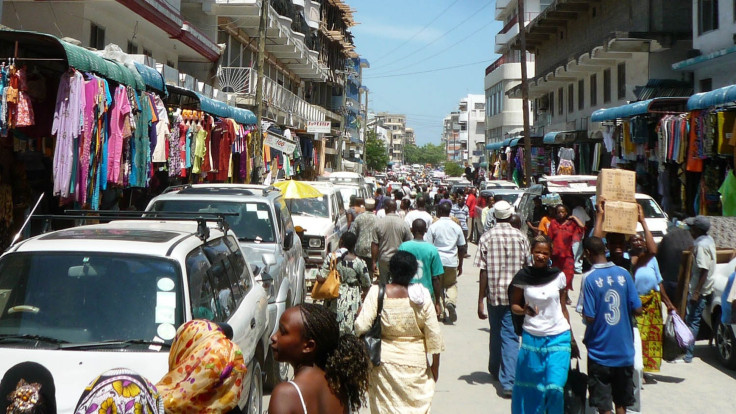Flagrant Graft: Tanzanian Officials Accused Of Embezzling $5 Million During Obama's Visit

Officials in the East African country of Tanzania have been accused of embezzling $5 million during a global summit held from June 28-July 1. The summit occurred simultaneously as another rather high-profile diplomatic event: U.S. President Barack Obama arrived in Dar es Salaam on July 1, where he met with Tanzanian President Jakaya Kikwete. "Tanzanians continue to work to strengthen their democracy," Obama said shortly after his arrival during a late afternoon press conference. "Parliament, opposition groups, civil society groups, and journalists are all doing their part to advance the good governance and transparency upon which democracy and prosperity depend."
But not far from the site of that conference, alleges Tanzanian cabinet minister Samuel Sitta, a coterie of corrupt officials were raking in the spoils of illegal graft. “Eight billion shillings have been stolen by greedy public officials who formed fictitious companies and awarded themselves tenders to supply publications for the conference,” Sitta said, according to the Thomson Reuters Foundation. He explained that the offenders had competed for bids under the guise of unregistered companies, winning the funds to distribute various supplies -- including stationery and Tanzanian flags -- but pocketing the profits instead.
The government now promises to launch an audit of the affair in October. At least one public official, Foreign Affairs Secretary John Haule, has dismissed the accusations and criticized Sitta for seeking attention. The embezzlement allegedly occurred at the Global Smart Partnership Dialog, an annual event that began with a Malaysian summit in 1995. Various African countries -- mostly in Eastern and Southern Africa -- have hosted the gathering over the years. The attendees are meant to discuss scientific and technological solutions to global development problems, and to build a bridge between Asian and African communities.
This summer was the first time the summit has been held in Tanzania, which the Global Smart Partnership website describes as "a developing country, seeking to pull itself out of poverty and striving to bring development to its people." "Participation of different groups such as political leaders, public servants, leaders of business industry, academia, youth, media representatives, civil society and women in bringing changes is paramount," it adds.
But not all styles of participation are welcome. If Tanzanian officials have indeed managed to spirit away $5 million, it will reflect poorly on the summit -- and the country, where up to 68 percent of the population lives on less than $1.25 a day. Tanzania has long struggled with corruption -- politicians regularly promise to address it, but the problem has deep roots. The latest findings from the global watchdog Transparency International gives the country a score of 35 -- out of a perfect 100 -- on its corruption percent index, ranking the country 102nd out of 176 worldwide. That's not the worst Tanzania could do; nearby states like Zimbabwe and Kenya have even poorer records. But if transparency and justice is the goal, it is clear that Tanzania's politicians and civil society groups have quite a ways to go.
Moreover, even if embezzlement has occurred in this Global Smart Partnership Summit, Sitta has little hope that the perpetrators will ever be brought to justice. “We are tired of these probe teams, because every time theft happens we are told a probe team has been formed to investigate the scandals and the outcome is always kept secret," he said to Reuters.
© Copyright IBTimes 2024. All rights reserved.











